The Worktech LATAM 2024 events -organized by the design and construction firm Contract Workplaces– made their way through Chile, Peru, Uruguay, and Argentina, bringing together thought leaders and innovation experts to explore the future of work and the transformation of workplace environments. This year, the conferences focused on the need to humanize workspaces and leverage technology to create meaningful experiences for collaborators.
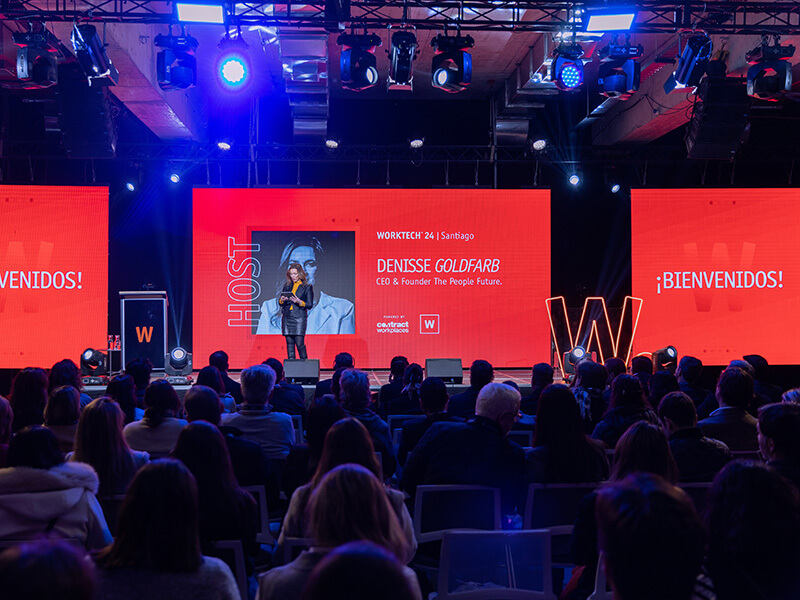
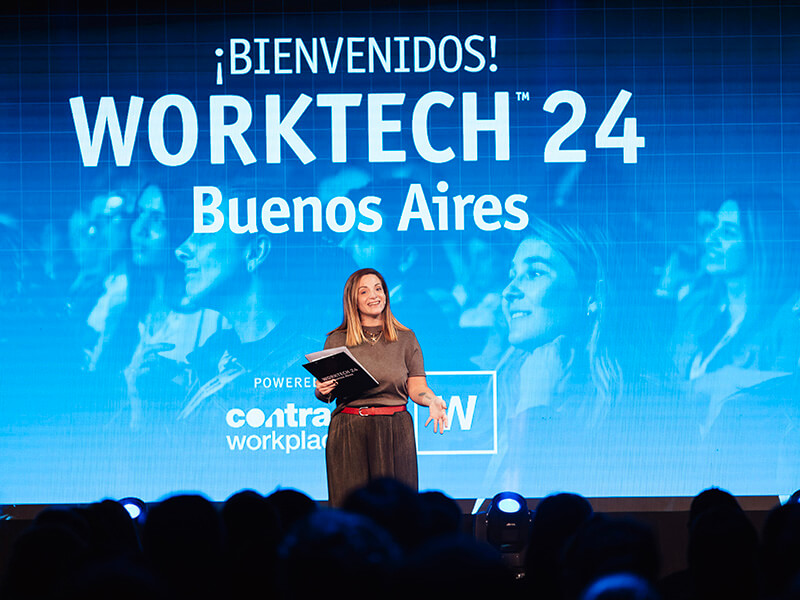
The current work crisis was a recurring theme, addressed by Carolina Bellora -Director of Bizart Group and consultant in Change Management and Cultural Transformation- and Carmen Gloria Cárcamo Losada -Co-Founder & Professor at Unlearni and Director of Innovation Projects at Socialab- shared insights on the importance of connecting with employees through meaningful purpose.
Bellora emphasized the cultural transformation needed within organizations, while Cárcamo Losada presented artificial intelligence as a tool to enhance human capabilities, suggesting that technology should be viewed as an ally rather than a threat. Both experts underscored that “if you work like a robot, a robot will take your job,” emphasizing passion as a key differentiator.
Echoing this message, Annarita Nieri -Chief Strategy & Transformation Officer at Niubiz- highlighted the importance of nurturing organizational culture and creating an environment where employees feel valued and connected to their purpose. “If we can create a space where talent is valued, and each person’s story becomes part of the collective success, then we’re building an organization prepared for any future challenge,” she concluded.
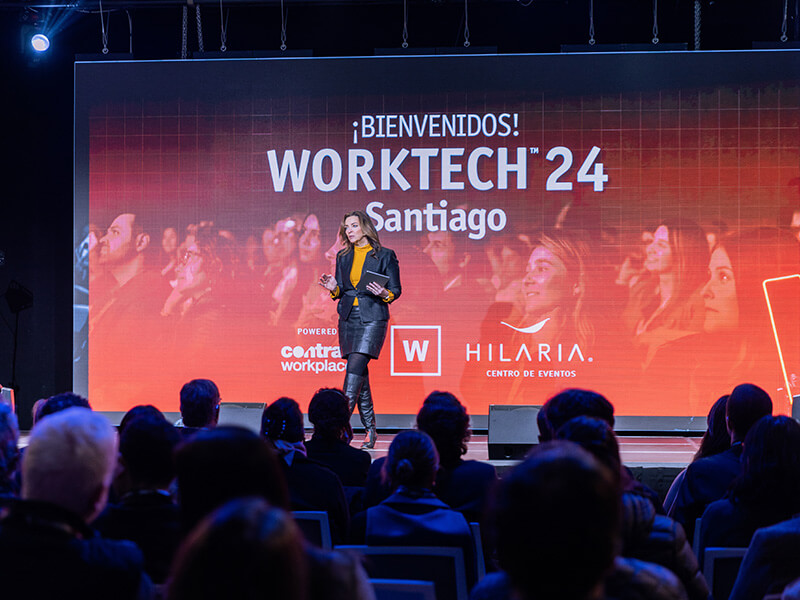
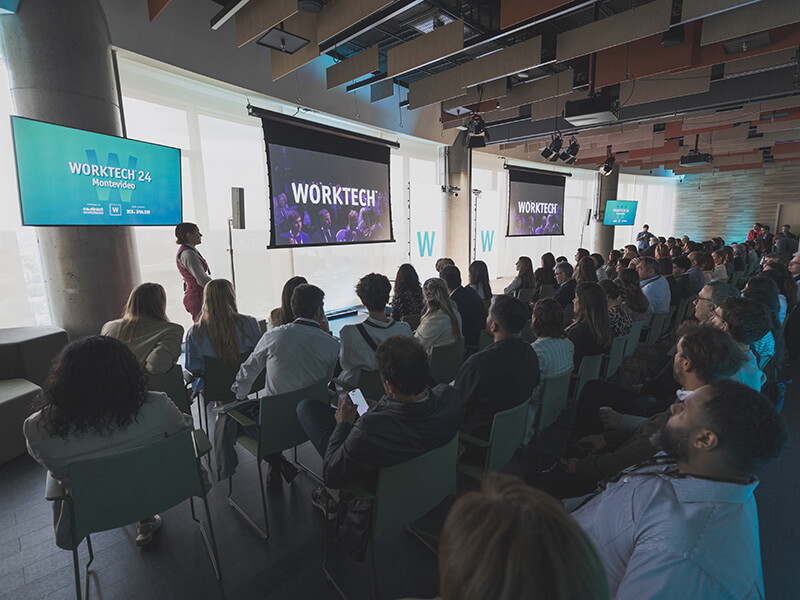
The role of art in organizational culture was also discussed by Florencia Pochinki, a strategic consultant in the cultural sector, who explored how artistic interventions -like those in the offices of Supermayorista Vital- can reflect and strengthen a brand’s values and influence in how work environments are experienced. Meanwhile, Adam Scott -Founder and Global Creative Director of FreeState-, argued that experience design is fundamental for fostering deep connections, which is essential in a world facing constant social change. Scott emphasized the need for an “experience master plan” that takes into account each employee’s journey, showcasing the Serena Williams Building at Nike’s global headquarters in Beaverton, Oregon, as an example of a workspace designed to foster connection, collaboration, and innovation.
Another key topic was the evolution of workspaces into collaborative communities. Leon Rost -Partner at Bjarke Ingels Group (BIG)-, and Joe Brady -a consultant on the future of commercial real estate- discussed how the design of these environments should cater to human needs, promoting health and well-being. Rost demonstrated how technological advancements and social expectations have redefined workplace design. According to the architect, it is important to incorporate all aspects of life into the workspace: interaction with other people, connection with nature, hospitality, flexibility and sustainability. Brady analyzed the impact of shifting consumer behavior on the commercial real estate market, stressing the need to view physical spaces as places for community interaction. He stated, “Old ways of thinking and operating are no longer sufficient to understand or solve contemporary issues. This is especially relevant in industries transformed by technology, where traditional methods are being outpaced by new digital platforms.”
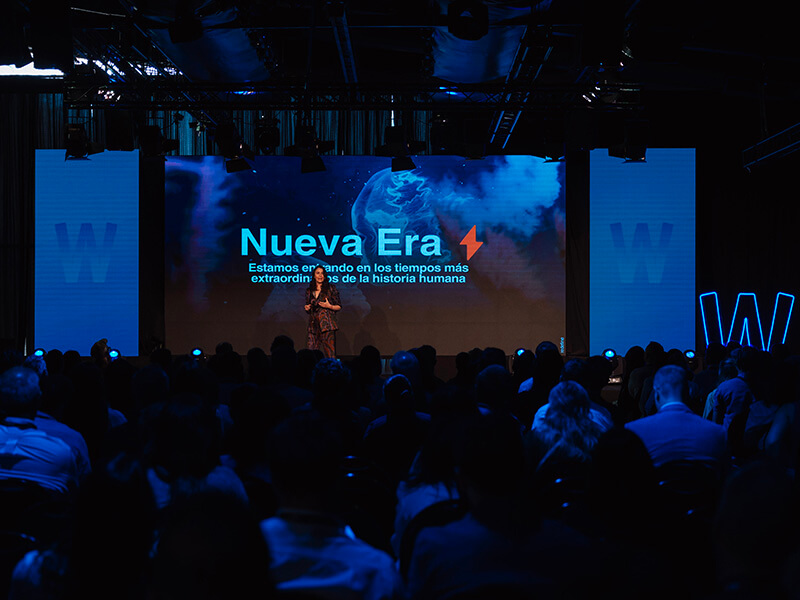
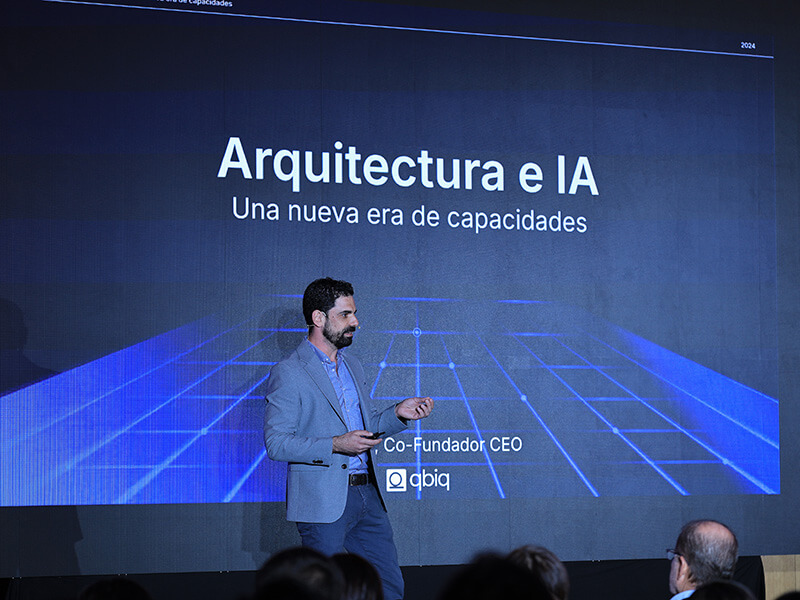
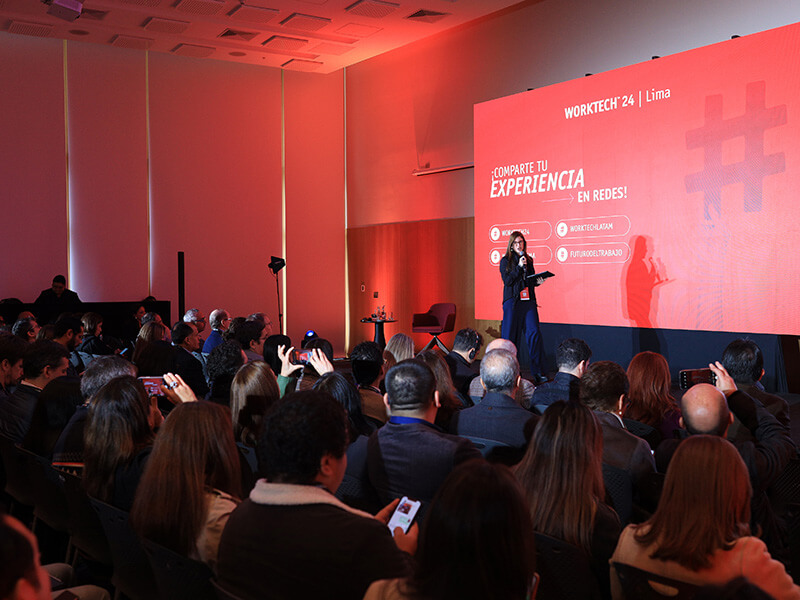
The commitment to sustainable business practices was emphasized by Gustavo Pujol, CEO and Founder of Interop Latin America, who posed critical questions about the true commitment behind ESG (Environmental, Social, and Governance) efforts. He analyzed the balance between marketing and genuine action in sustainability, emphasizing that a strong organizational culture is essential for long-term success.
The technological revolution and the impact of artificial intelligence were addressed from various perspectives. Leeor Solnik -Co-Founder and CEO of qbiq- provided examples of how AI is transforming architectural planning. Meanwhile, Daniel Hulme – CEO of Satalia and director of AI at WPP – emphasized how organizations can adopt these technologies responsibly. Both, in turn, stressed the need for a strategic approach to maximize the potential of technology and avoid its hype. He postulated “that means that organizational structures must be reinvented. We know that we have processes such as expenses, incorporation and dismissal of personnel that tend to be quite bureaucratic, and these are a brake on the ability to innovate”.
Finally, the business disruptor, Gabriel Gurovich, argued that the true impact of AI on work will be evident only when the AI native generation starts working. “Those born in the last 24 months, who are still young, will become AI natives. Just like what happened with internet natives, those born into a world of easy, non-keyboard-based technology interaction. It will be the same for AI natives.”
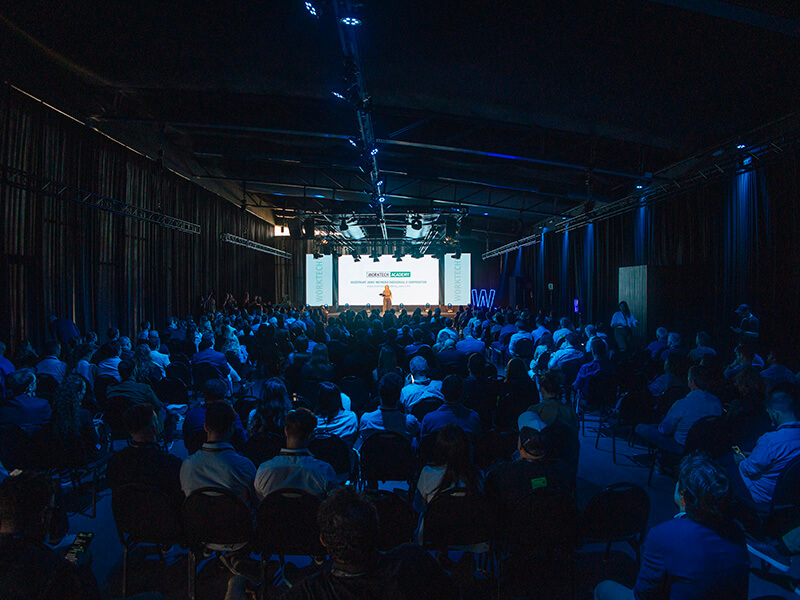
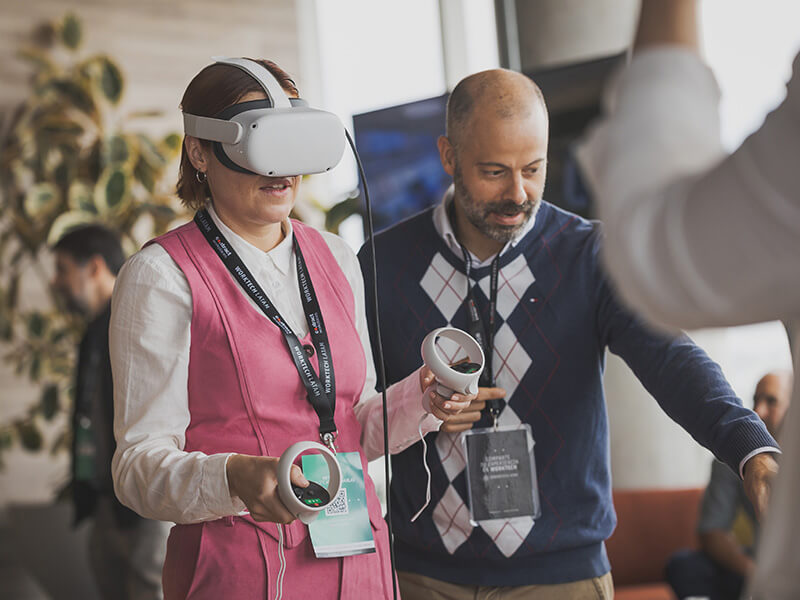
With over 1,000 attendees, Worktech LATAM once again established itself not only as a platform for reflecting on current challenges but also as a call to action for organizations to humanize workspaces, incorporate experience design, consider team well-being, promote sustainability, and adopt technology responsibly. In this context, the future of work emerges as an opportunity to build more inclusive, connected, and resilient organizational cultures.